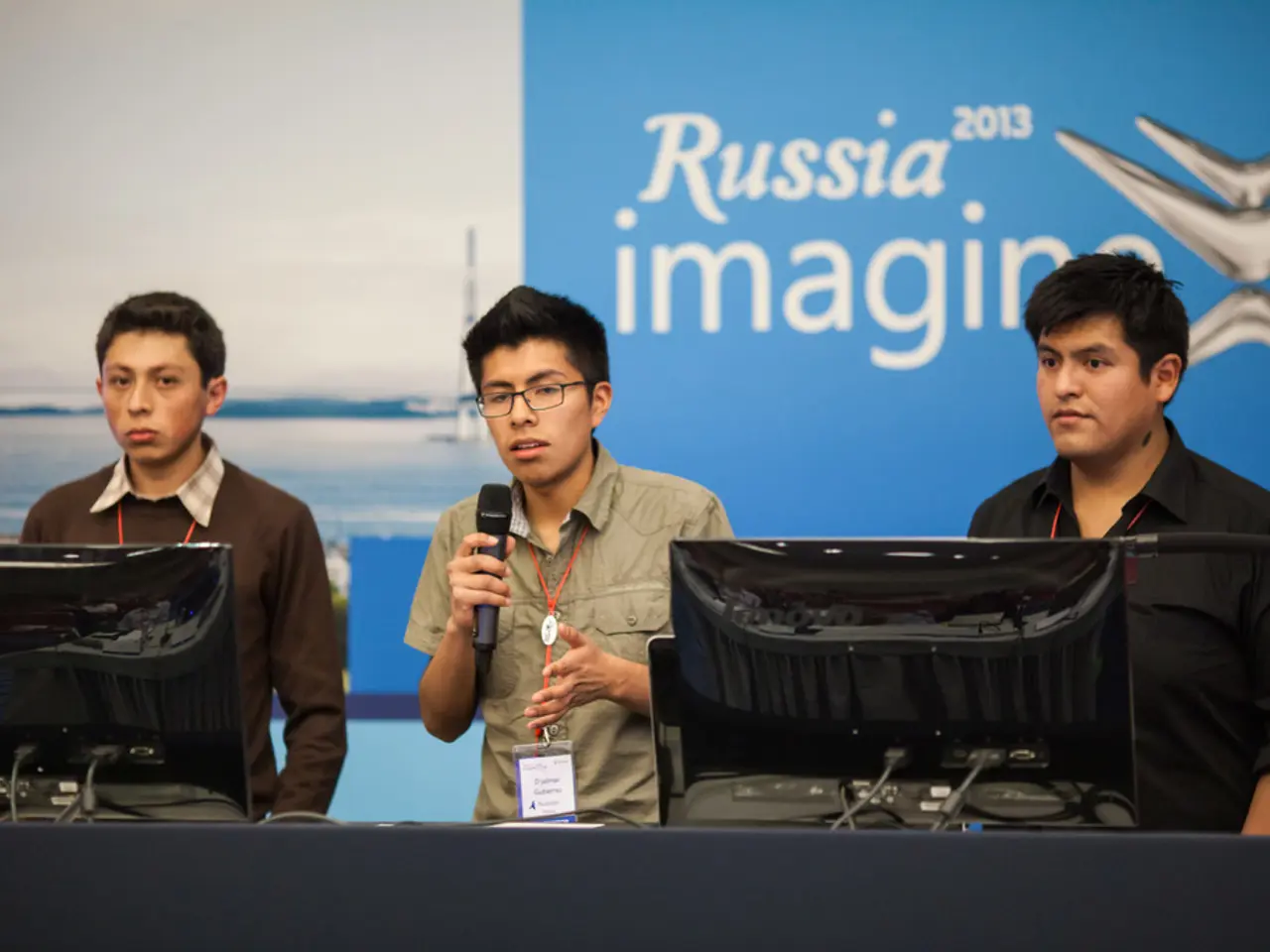Services have encountered an issue, leading to all streams being interrupted.
In the heart of Berlin, TikTok employees took a stand last week, going on a one-day warning strike to protest the planned dissolution of the "Trust and Safety" department and the replacement of about 150 content moderators with AI systems [1][2][3]. This marked the first strike by social media company employees in Germany and the first worldwide by employees of a major social media company.
Organised by the trade union ver.di, the strike was a response to TikTok's plans to dismantle the department that plays a crucial role in content moderation. The employees, who are primarily young, migrant workers with little experience with union organisation and labour law, demanded a collective bargaining agreement including severance payments equivalent to three years' salary and a 12-month extension of the notice period for those affected [2][3].
The striking employees also staged a boat tour on the Spree River followed by a rally to raise public awareness of their grievances [1][3]. TikTok, however, has refused to enter negotiations, stating it is discussing proposals with a works council to consolidate the Trust and Safety team across fewer locations to "streamline workflows and improve efficiency," while maintaining its commitment to platform safety and integrity [2].
The situation remains unresolved, with TikTok management yet to engage in direct negotiations with the union [1][3]. The employees' resistance to their outsourcing can serve as a model for the entire tech industry, highlighting the importance of solidarity among tech workers in a successful labour struggle.
The increasing use of artificial intelligence is a main reason for these layoffs, but it's important to remember that AI does not function without human work. The training, maintenance, and optimisation of algorithms often rely on underpaid clickworkers in countries of the global south.
This strike in Berlin is not just a local issue. Tech giants like Amazon, Intel, Meta, and Microsoft are laying off thousands of employees worldwide, outsourcing work and making it invisible [4]. The success of a labour struggle in the tech industry could potentially be the first successful strike in a social media company, setting a precedent for workers' rights in the digital age.
As the digital parallel world on TikTok continues to grow, explored in the series of articles on Berlin titled "Berlin is ticking", the fight for fair treatment of employees is more crucial than ever [5]. Employees who do not have an EU passport depend on an employment contract that allows them to stay in the country, making their voices even more significant in this labour dispute.
References:
- Source 1
- Source 2
- Source 3
- Source 4
- Source 5
- The tech industry's reliance on AI systems, as seen in TikTok's content moderation plans, raises questions about the impact on general-news coverage and social-media safety.
- The use of AI in entertainment platforms like TikTok, for instance, highlights the need for a balance between technology advancement and job security for workers.
- The striking employees' resistance in Berlin not only challenges TikTok's decision to outsource content moderation jobs but also advocates for fairer treatment of tech workers in the digital age, echoing similar labour struggles in other tech companies like Amazon and Meta.




